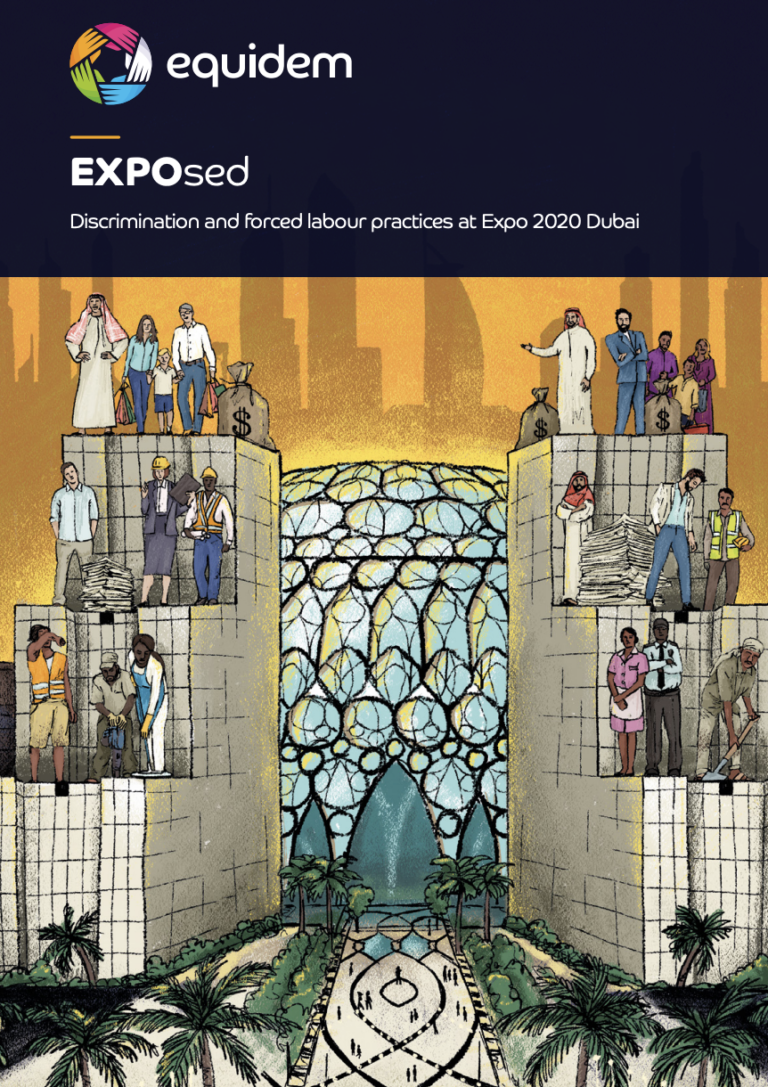Expo 2020 Dubai could not have taken place without migrant workers who make up more than 90% of private sector employees in the UAE. With more than 40,000 workers employed in the construction process alone. Similarly, the delivery of the Expo requires thousands of additional migrant workers to perform a range of services, including in facilities management, security, hospitality and cleaning.
Equidem research between September and December 2021 reveals that migrant workers engaged on projects at Expo 2020 Dubai across a range of sectors – from hospitality and retail to construction and security – are being subjected to forced labour practices. These practices violate UAE law yet, as far as Equidem is aware, none have been investigated by the authorities, nor has any individual or business been brought to account. Workers also spoke of being subjected to racial discrimination and bullying, and a reluctance to make formal complaints about their treatment out of fear of reprisals from employers or the authorities. This is despite Expo organisers establishing labour complaint grievance mechanisms as part of wide-ranging worker welfare standards that are meant to apply to all individuals working at the event and which establish a higher threshold of protection than under the UAE’s labour laws.

